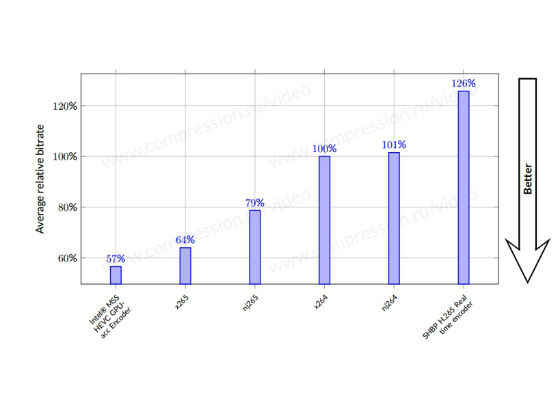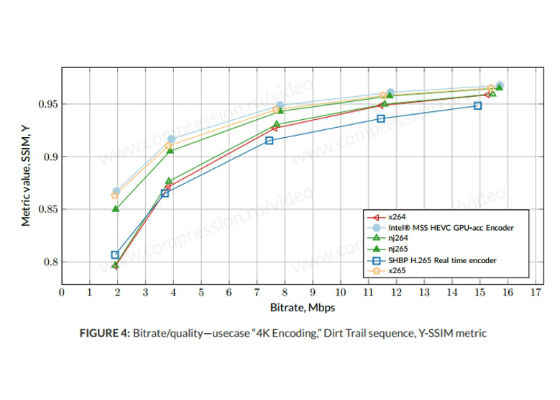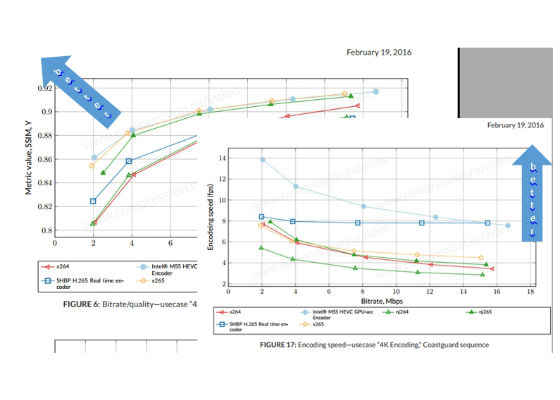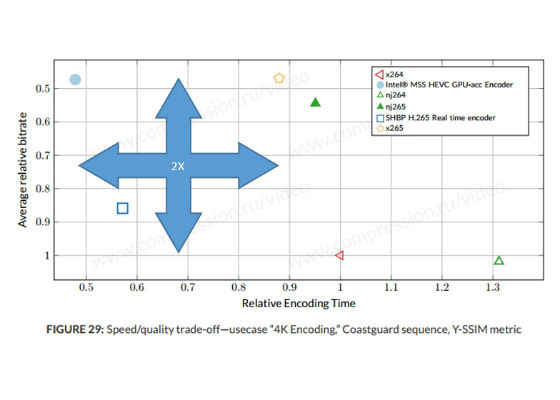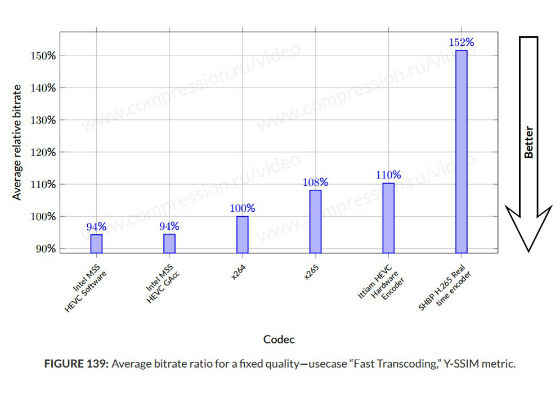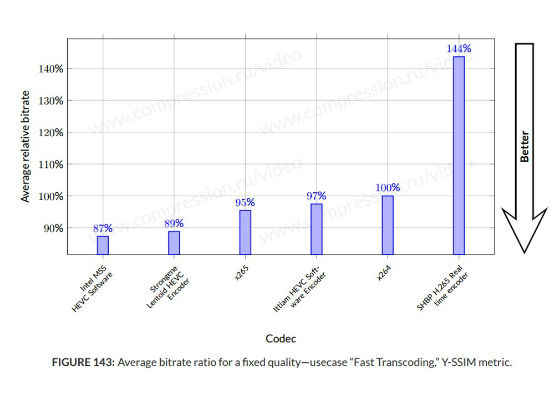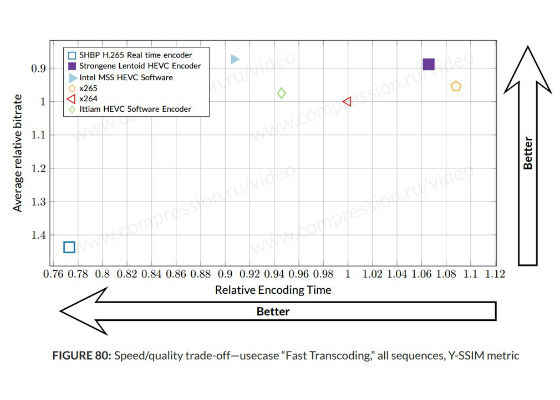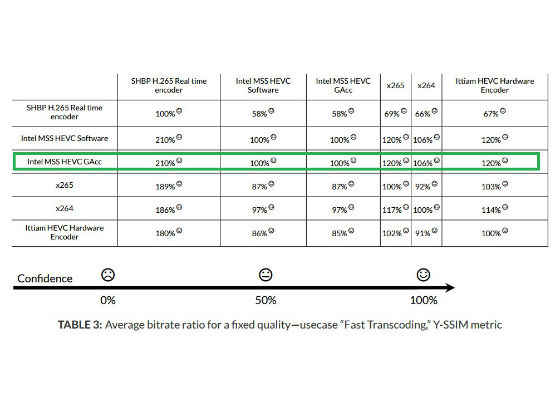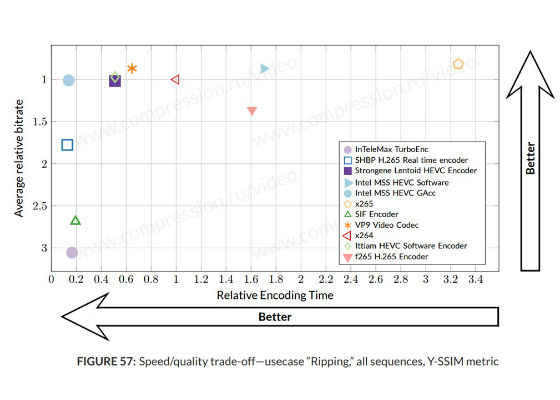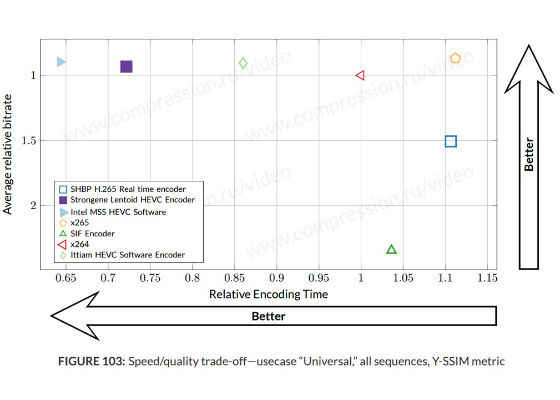Intel Media Server Studio HEVC Codec Scores Fast Transcoding Title
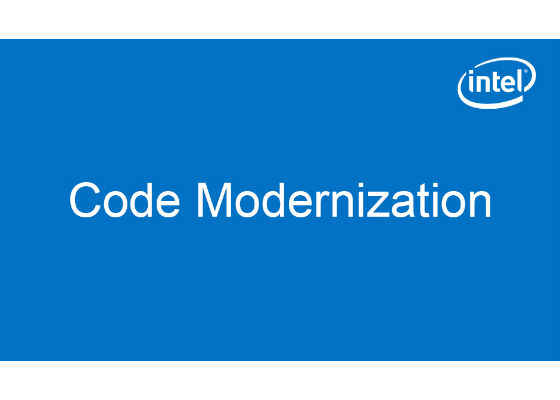
In its 2015 HEVC/H.265 Video Codec Comparison report, Moscow State University (MSU) concluded that Intel® Media Server Studio’s HEVC codec showed significant competitive advantages in the Fast Transcoding category. Now MSU has released an updated report on 4K HEVC video codecs, which shows that H265/HEVC technology has a great advantage over previous-generation H264. The study’s best-in-class HEVC encoder―Intel Media Server Studio’s Intel GPU-accelerated codec―delivers 43 percent better compression for the same quality as 2-pass x264-medium.
 Survey
SurveyWith video the largest, fastest-growing category of Internet traffic1—alongside bandwidth and other technical constraints—delivering fast, high-quality transcoding is a premium for video solution providers to gain consumer viewers in a highly competitive market segment.
Key takeaways from the MSU reports:
1. Intel Media Server Studio’s Intel GPU accelerated codec delivers 43 percent better compression for the same quality as 2-pass x264-medium. Other competitors could not match the Intel GPU-accelerated codec in quality and speed.
2. The HEVC quality advantage is huge on low bitrates (2 – 8 Mbps) with non-synthetic clips.Synthetic clips (e.g., Sintel*) demonstrate a smaller gap between technologies. Also, the HEVC win is not just accumulative (i.e., due to the advantage from smaller bitrates). The Intel GPU-accelerated code demonstrates a consistent advantage over the entire bitrate spectrum.
3. The Intel Media Server Studio GAcc encoder produced the best objective quality with minimal file size―with output almost twice as fast as other codecs in the comparison.
4. For combined speed and compression, the Intel GPU-accelerated codec is more than 2x better in compression and speed than x264 (dual pass) and almost 2x better in speed than x265 for similar compression results. (Other points in figure 29 do not make sense because they demonstrate compression and speed performance below the top 2 codecs in both measured directions). The SHBP codec often demonstrates better speed than the others, but its objective metric varies around x264.
5. Intel HEVC GPU-accelerated encoder is the winner in Fast Transcoding on Desktop (Figure 139) and on Server (Figure 143) showing the best quality for the best speed (Figure 80).
Fast Transcoding on Desktop
Fast Transcoding on Server
Fast Transcoding: Best Quality for the Best Speed
6. Intel’s HEVC GPU-accelerated encoder is the only codec that demonstrated an advantage of HEVC over x264-medium (2pass-ssim-tuned) for both performance (1.1x) and quality (6%) (Table 3).
7. Intel’s HEVC GPU-accelerated Encoder demonstrates the same quality-to-compression level as x264-placebo (dual pass), but is 10x faster (Figure 57).
8. Intel Media Server Studio’s HEVC software encoder demonstrates unreachable speed with equal quality (SSIM) compared to two best-in-quality solutions from other vendors (Figure 103).
9. Intel Media Server Studio’s HEVC GPU-accelerated encoder received 5 of 6 Pareto-optimal ratings in terms of performance and quality across Desktop and Server. (See chapters 4.1.3, 4.2.3, 4.3.3, 5.1.3, 5.2.3 of the report.)
Get a Copy of the Reports
- For details about these insights and other comparisons in the study, download the MSU 2015 HEVC/H.265 Video Codecs Comparison (compression.ru/video/codec_comparison/hevc_2015). Both free and paid Pro versions are available.
- Get the 4K HEVC Video Codecs report here.
- Learn more about test conditions and the test environment here.
For more such intel Modern Code and tools from Intel, please visit the Intel® Modern Code
Source:https://software.intel.com/en-us/blogs/2015/10/23/intel-media-server-studio-hevc-codec-wins-transcoding-title
